Decorated with ornaments, glistening tinsel, blinking fairy lights and topped by a star, the French Christmas tree has become an iconic figure of Christmas. This discovery article will answer questions such as:
- where and when were the traditions of the Christmas tree born?
- what are the types of Christmas trees sold in France?
- what are the types of decorations used in French Christmas trees?
Wishing you a Merry Christmas! Joyeux Noël!
The significance of the Christmas tree
The French called a Christmas tree “un sapin de noël” or “un arbre de noël”.
In France, the Christmas tree first appeared in Alsace in 1521. The tree, covered in red apples and lights, symbolised the venue of Christ: ‘the light that illuminates the world’. A fir tree is the best choice because it does not lose its leaves during winter. This is a symbol of hope and eternal life.
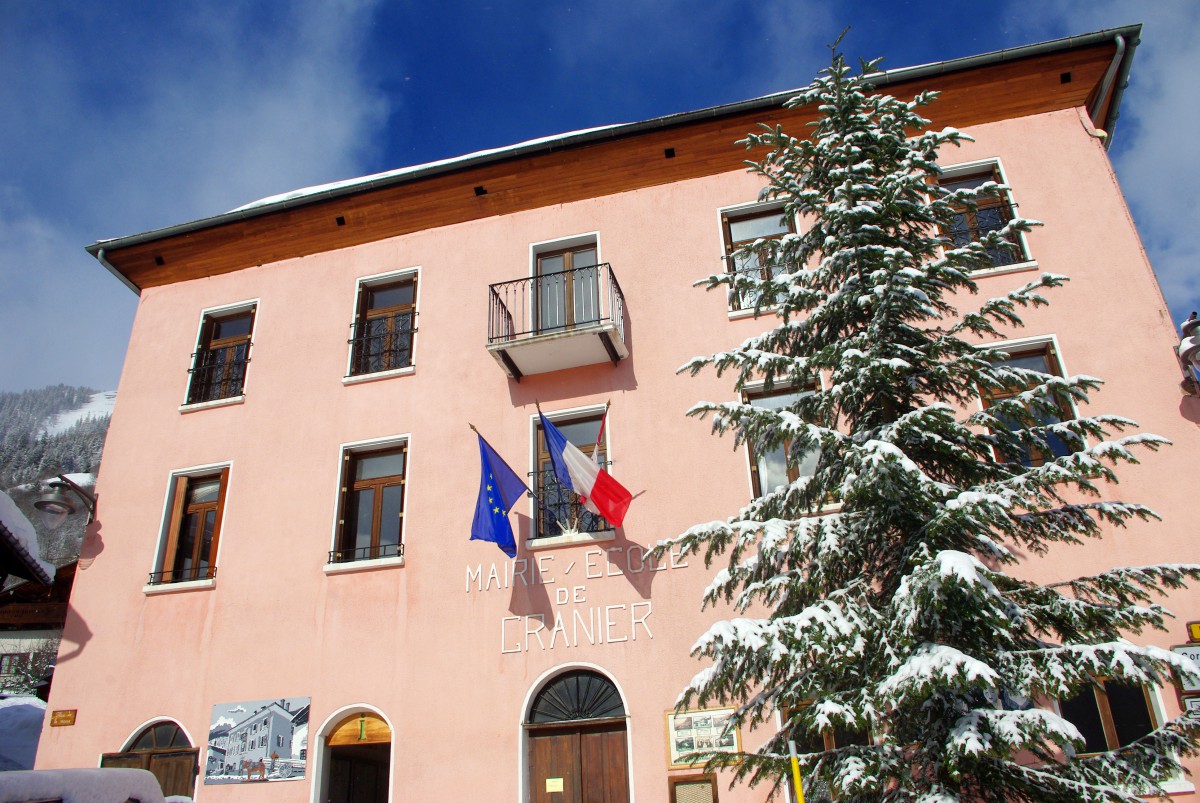
It is a more secular tradition than that of the Nativity and thus more appreciated by protestant countries such as northern Germany and Scandinavia.
The origins of the French Christmas tree
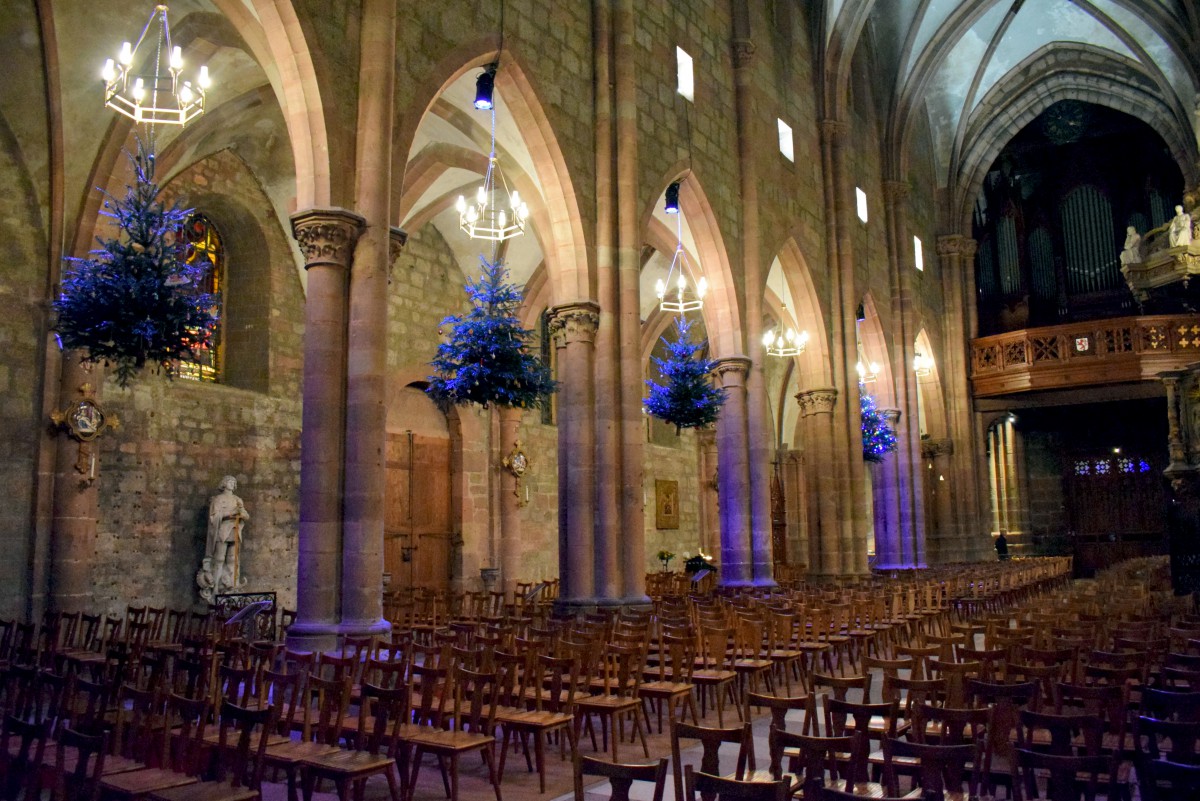
The tradition of decorated Christmas trees was a widespread tradition in Southern Germanic lands as early as the 16th century. It was in the Alsace town of Sélestat that the first official mention of a decorated tree in history appeared.
The Humanist Library (Bibliothèque Humaniste) stores a copy of the city’s record dating to 21 December 1521. The document contains a mention of the tree on page 239. It refers to four schillings given to the forest rangers to watch over the surrounding forest on Christmas Day.
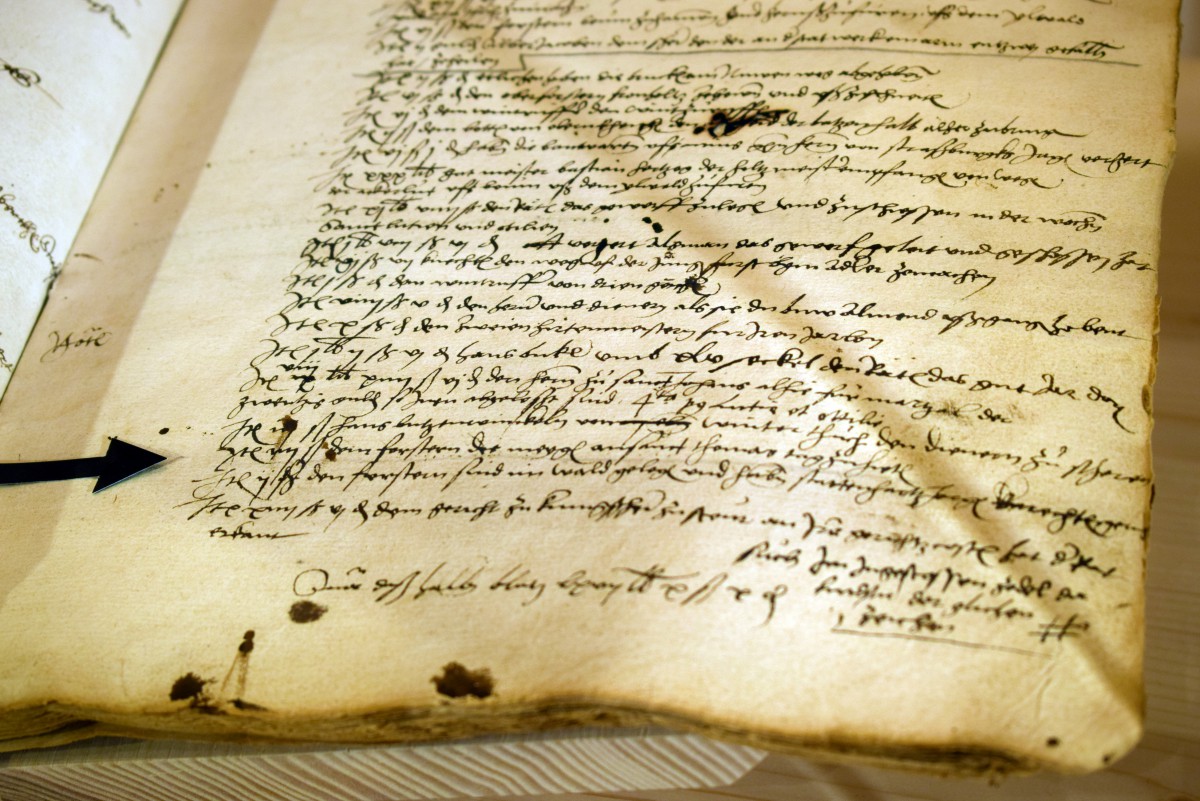
Save the forest!
The city of Sélestat had to spend this money in order to protect its woods from ruination. In fact, the demand for Christmas trees was so high in Alsace that local ordinances stated that “no person shall have for Christmas more than one bush of more than eight shoe lengths (4 feet)”.
Indeed, more than decorating just a branch, the people of Sélestat adorned the whole tree (which was hung from the ceiling).
Thus starting a new custom that would continue throughout the centuries to come across the whole world. From New York’s Rockefeller Centre to St. Martin Place in Sydney.
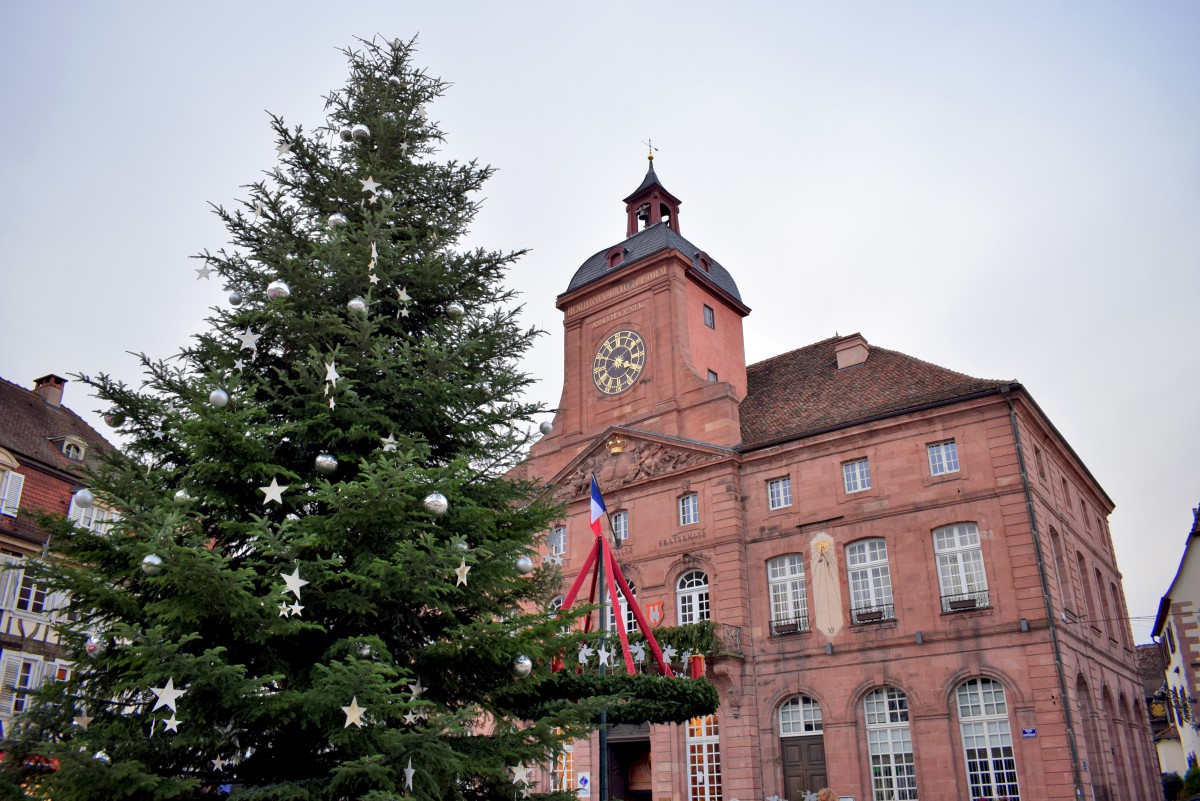
Boosted by the Reformation!
Interestingly the Reformation boosted the tradition of the Christmas tree. In the second half of the 16th century, the Reformation leaders refused to use a Nativity scene at Christmas. Instead, they encouraged the development of the Tree tradition, as it does not depict Jesus or any other biblical characters. Martin Luther suggested that the Christmas tree could be a symbol of the Tree of Life in the Garden of Eden.

The legend goes that Martin Luther once walked through the forest on Christmas Eve. Suddenly he was awed by the beauty of the starry sky that sparkled between the branches of the evergreen trees. Moved by this spectacular sight, he decided to cut a small tree to take home with him. There, he recreated the beautiful sight by placing candles on the tree’s branches.
The Christmas tree tradition reaching Paris
The Reformation leaders’ support of the Christmas tree explained why it quickly spread throughout the Northern European states, of the protestant faith, such as Northern Germany and Scandinavia.
Let’s keep in mind that in the 16th century, Alsace was entirely part of the Germanic world, as were the neighbouring duchies of Lorraine and Austria. The tradition of putting up a decorated fir tree on Christmas Eve was kept alive throughout the 17th and 18th centuries. On the contrary, the tradition never really broke through in France.
Christmas in Versailles!
All this would begin to change when Maria Leszczyńska, the Polish wife of King Louis XV, brought the tradition to Versailles. Although with very little success. Again, in the 1830s, the German daughter-in-law of King Louis-Philippe, Duchess Helen Louise of Mecklenburg-Schwerin, set up a Christmas tree in the Tuileries Palace. But this did not develop into a strong tradition among the French population.
The Alsatian Christmas tree tradition introduced in Paris
It was not until the Franco-Prussian War (1870-71) that the tree started to become popular in Paris and France.
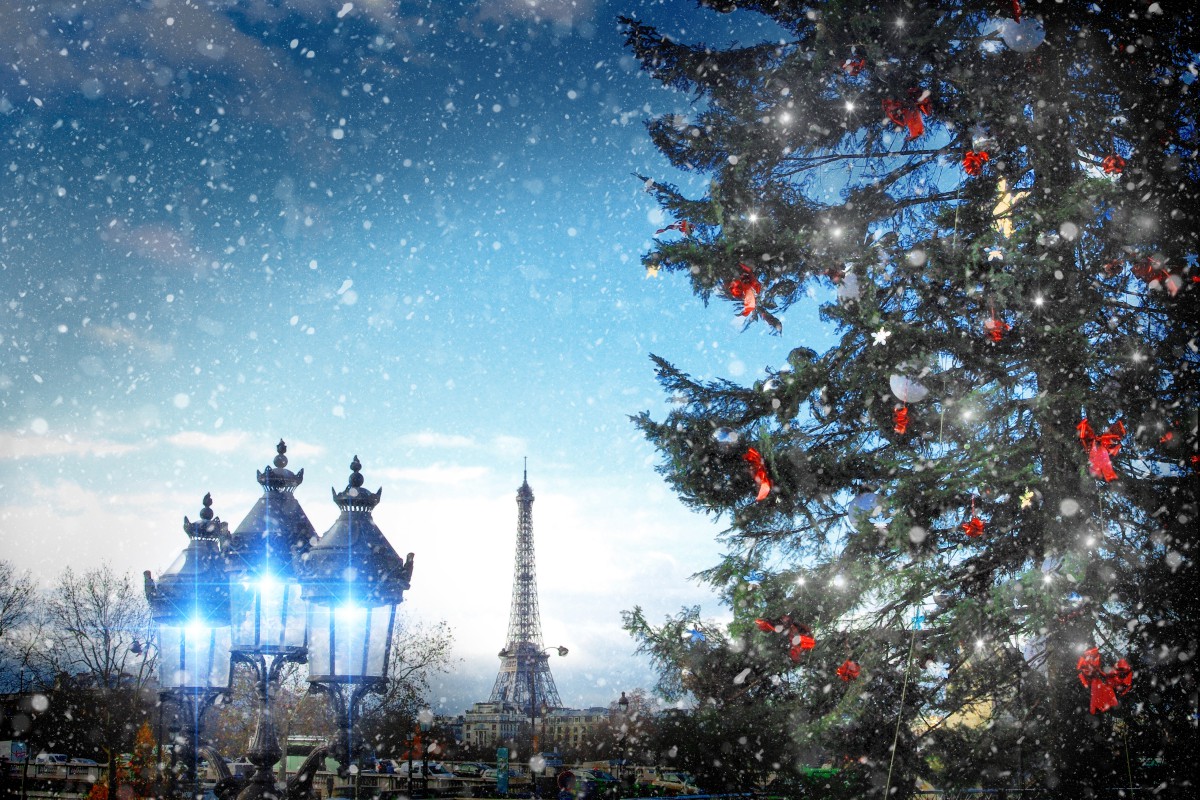
This was due to the flock of immigrants fleeing from the regions of Lorraine and Alsace. People who refused to become Prussian had to leave their homeland. They brought with them the Germanic tradition of the tree. Therefore by the 1930s, the tree had become part of the Christmas celebrations in every French household.
A universal Christmas tradition in France!
Today, every major town in France puts up gigantic Christmas trees in public places. You’ll find beautifully decorated trees near the cathedrals of Paris (until 2018) or Rouen, Place Kléber in Strasbourg or Place Stanislas in Nancy. Here below in Thann:
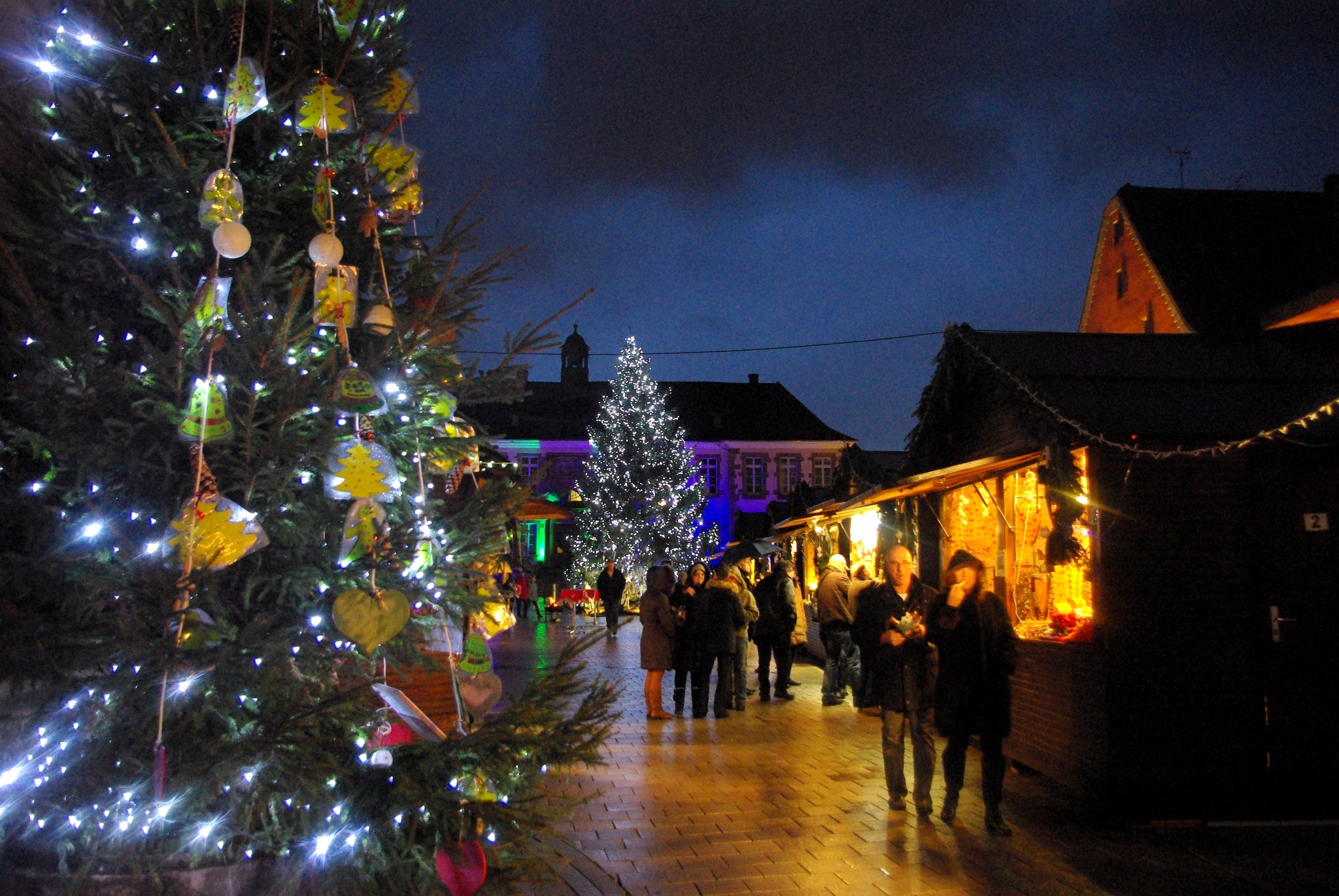
According to tradition, a Christmas tree should not be put up before Christmas Eve (24 December) and should be taken down twelve days after Christmas, that is, on the Epiphany. However, most French households have their French Christmas tree set up by about 15 December and street decorations are usually up from the first Sunday of Advent.
Types of Christmas Trees sold in France
There are three species available: spruce, Nordmann and noble fir trees.

Most people who want to have a real tree at home go to a Christmas Tree stand located at a local supermarket, Christmas market or a specific place designated by the municipality. There, the seller often knows how to properly prune a Christmas tree. This can make a huge difference when it is put up at home.
As for us, when we lived in the Alps, we took our tree from the village’s square. Foresters had cut the trees to clean the surrounding forest and left the small trees at free disposal for all the villagers.

► Read more about Christmas Tree Types in France.
Whilst in Australia, we used to buy and decorate Monterey Pines (Pinus radiate):
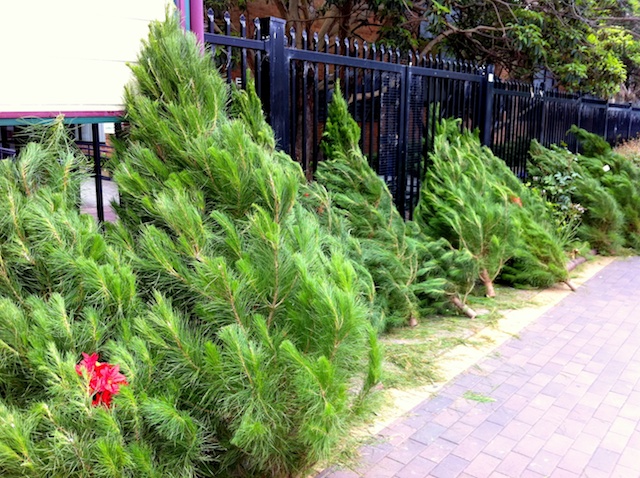
The legend of the fir tree
It is said that St. Boniface, a German missionary monk from the end of the 7th century, wanted to convince the druid around Geismar in Germany that the oak was not a sacred tree. In trying to do so, he cut down an oak tree. As it fell, the tree crushed everything in its way except for a young fir tree.
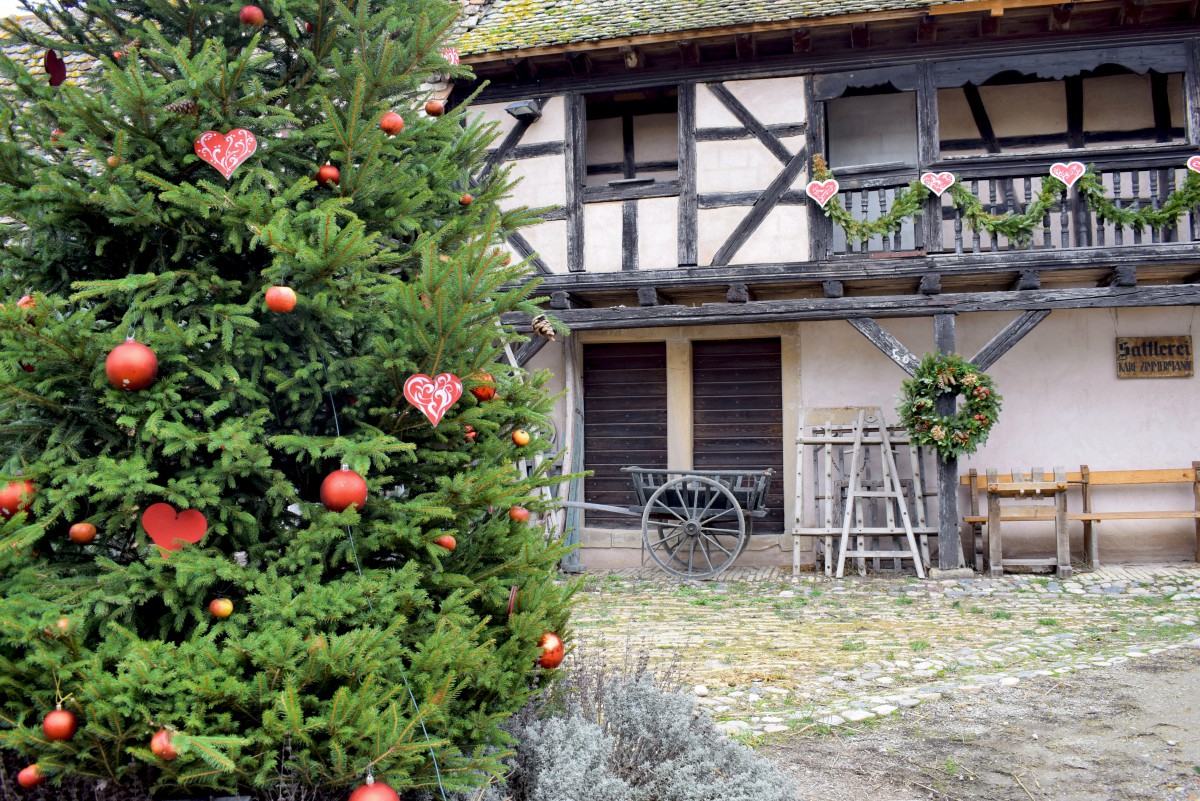
It was at this point that the legend began when St. Boniface proclaimed the fir’s survival as a miracle and declared, ‘From here onwards we shall call this tree the tree of infant Jesus’. Ever since, all across Germany and Alsace, young fir trees are planted to celebrate the birth of Christ.
French Christmas tree decorations
The first Alsatian Christmas trees used red apples (the symbol of temptation) and cookies resembling ‘hosts’ (the symbol of redemption).
Ornaments of the French Christmas tree
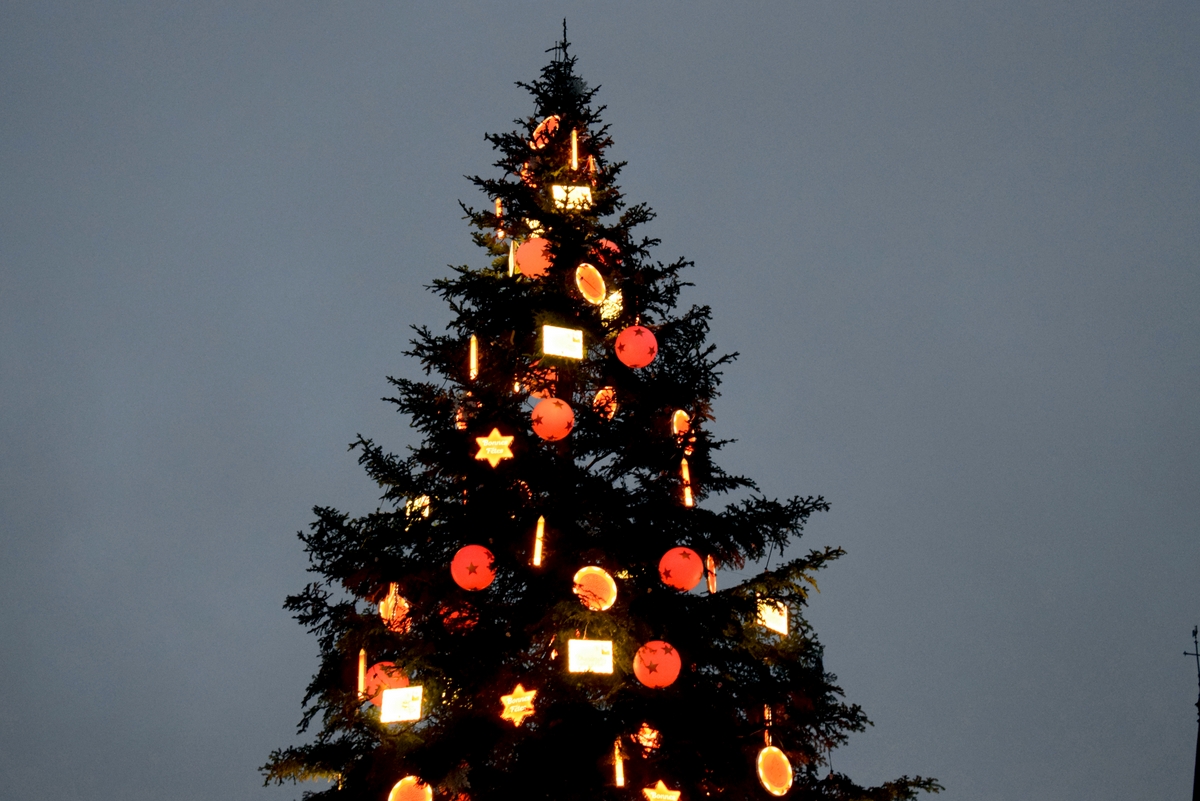
Originally Christmas trees were decorated with natural and edible products such as:
- apples,
- candies,
- dried cakes in the shape of characters,
- nuts,
- pine cones,
- dolls but also
- ribbons and coloured papers (in the shape of Alsatian flowers).
However, the legend tells of a great drought in the Northern Vosges in 1858.
This meant a poor harvest with no apples or other fruits. Consequently, locals couldn’t use them as part of their Christmas decorations. A glassblower from the Lorraine village of Goetzenbruck, near Meisenthal, imitated the shape of the fruits. He used his glass-blowing instruments to create stunning glass baubles.
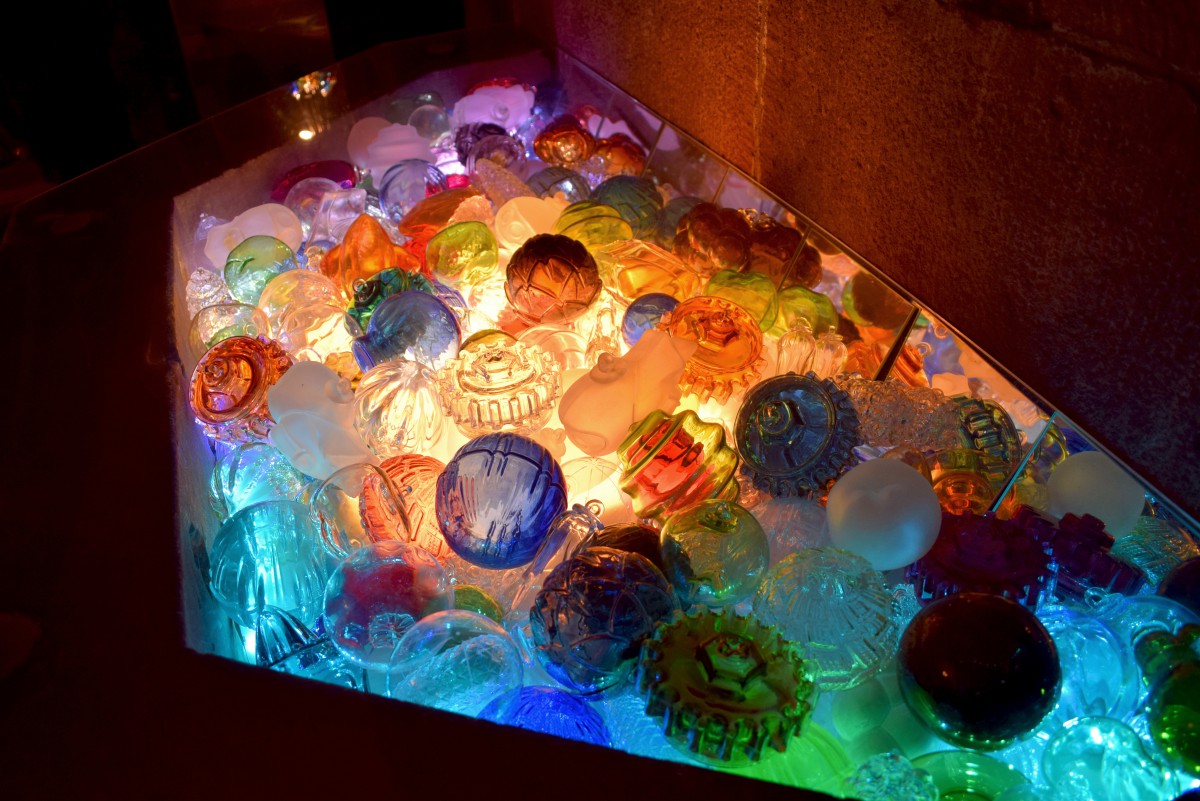
An extensive range of ornaments
Today, there is an extensive range of ornaments available in Christmas markets and department stores. The most expensive ones (and most fragile) are made of glass, while the cheapest are in plastic. Chocolate ornaments wrapped in foil are also extremely popular in France… Obviously, children enjoy them very much!
► Get your ornaments by shopping here!
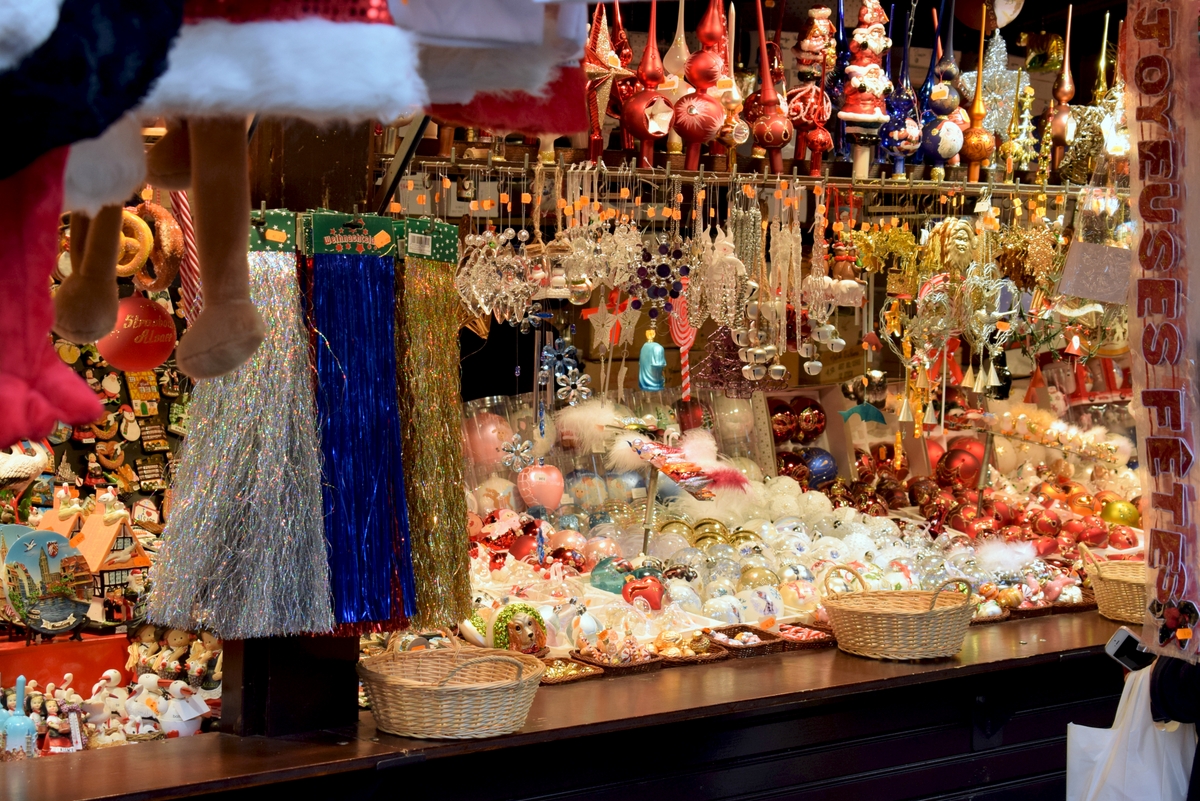
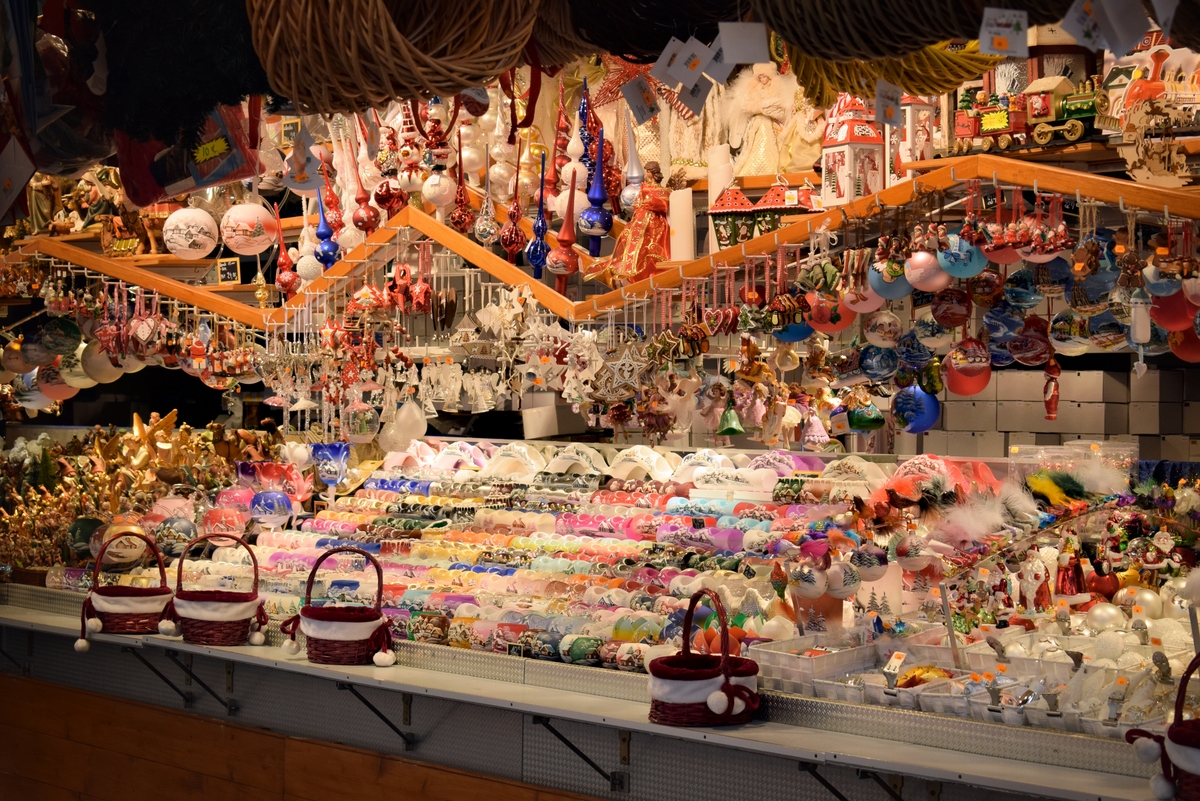
► Find out more about Christmas Decorations in France:
A selection of Christmas trees in France
French Christmas trees are set up in the heart of main cities from Advent to the New Year, such as in:
Paris
Until the great fire of Notre-Dame in April 2019, a beautiful Christmas tree used to ornate the parvis.

► Discover Paris at Christmas time
Strasbourg, Alsace
In Strasbourg, the Christmas tree traditionally stands in place Kléber. It is the largest of all French Christmas trees. It is beautifully decorated on a different theme each year.
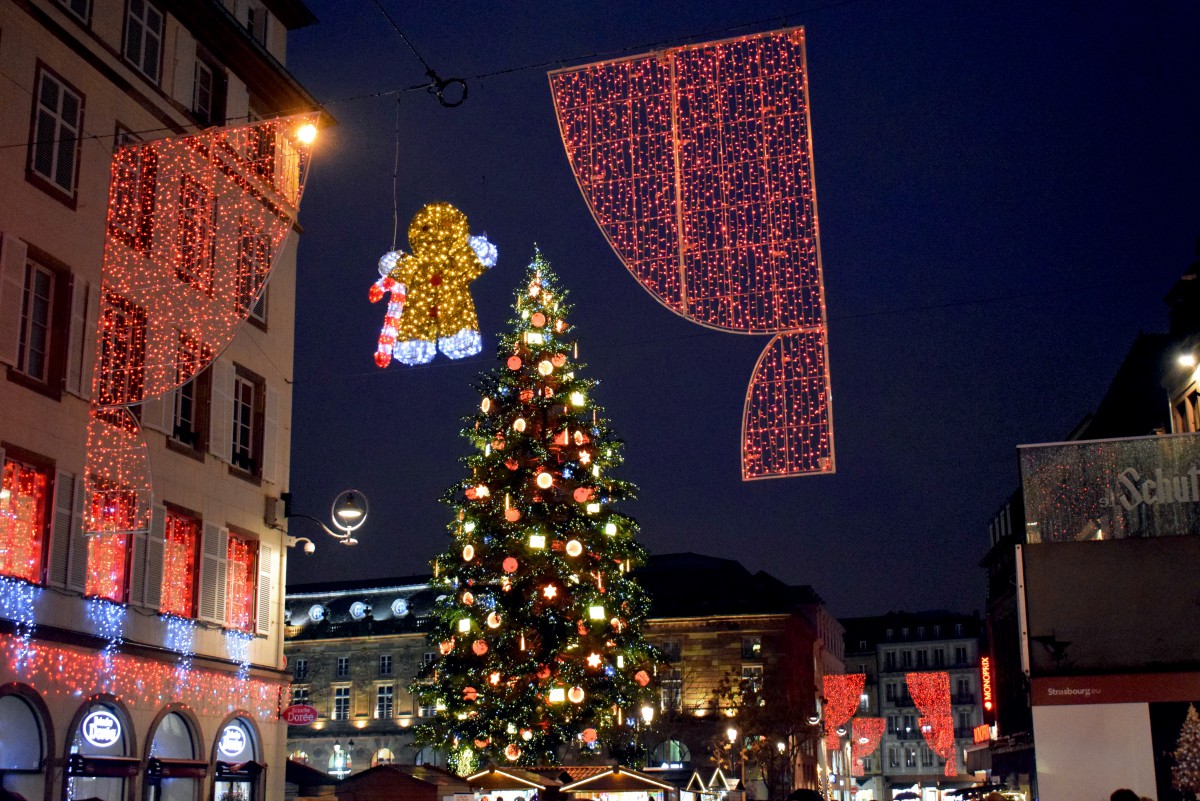
► Discover the Christmas trail of Strasbourg
Nancy, Lorraine
In Nancy, the Christmas tree majestically stands on the royal square of Place Stanislas. It is arguably one of the most elegant trees I’ve ever seen in France.

► Discover Nancy at Christmas time
Metz, Lorraine
The Christmas tree of Metz is located on the Railway station square.

► Discover Metz Christmas market
Mulhouse, Alsace
The great Christmas tree in Mulhouse stands in Place de la Victoire, not far from the Christmas market of place de la Réunion.
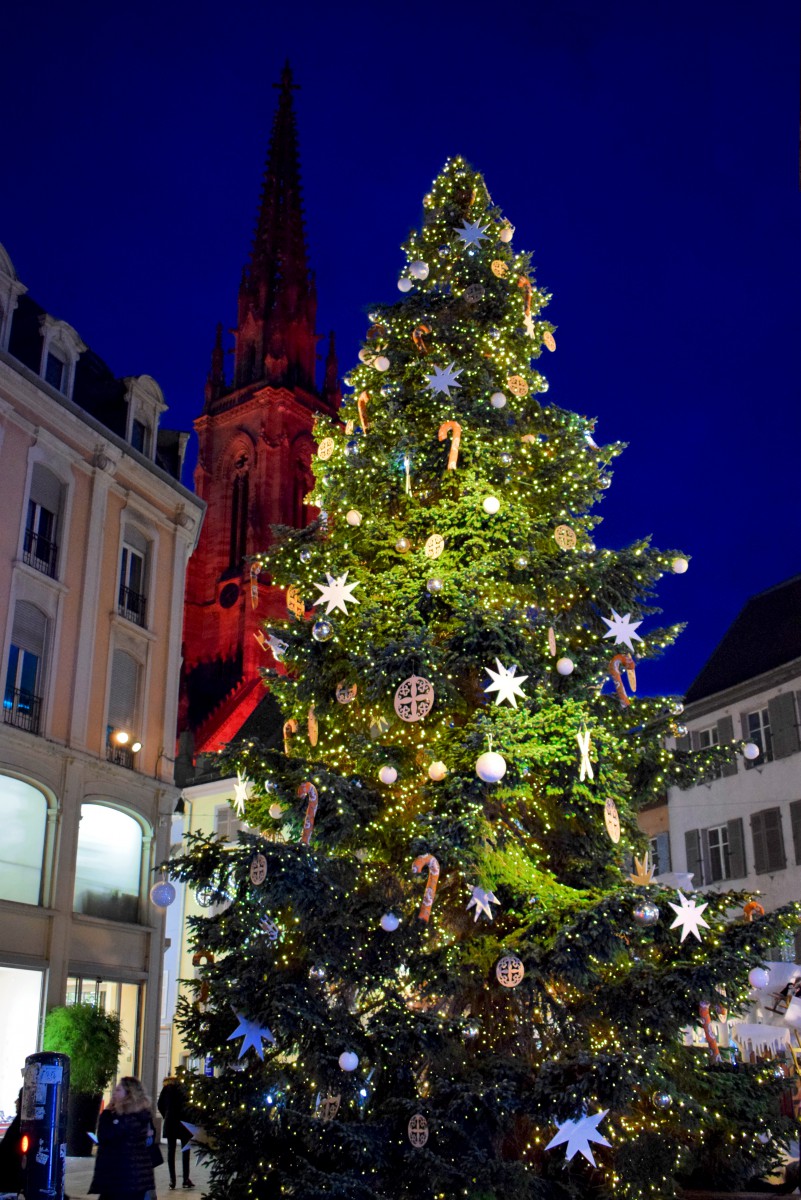
► Discover the Mulhouse Christmas market
Haguenau, Alsace
The Christmas tree of Haguenau overlooks the entire Christmas market.
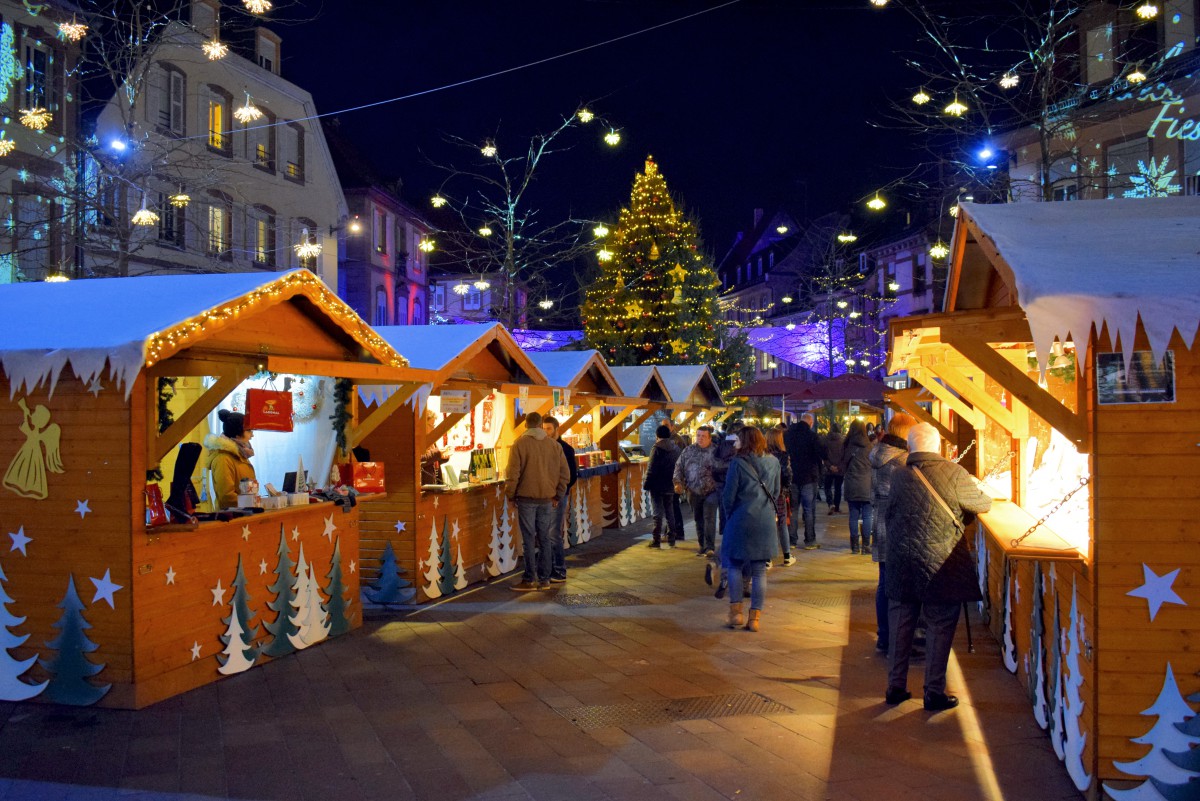
Obernai, Alsace
The Christmas tree of Obernai takes centerstage of the Christmas market.
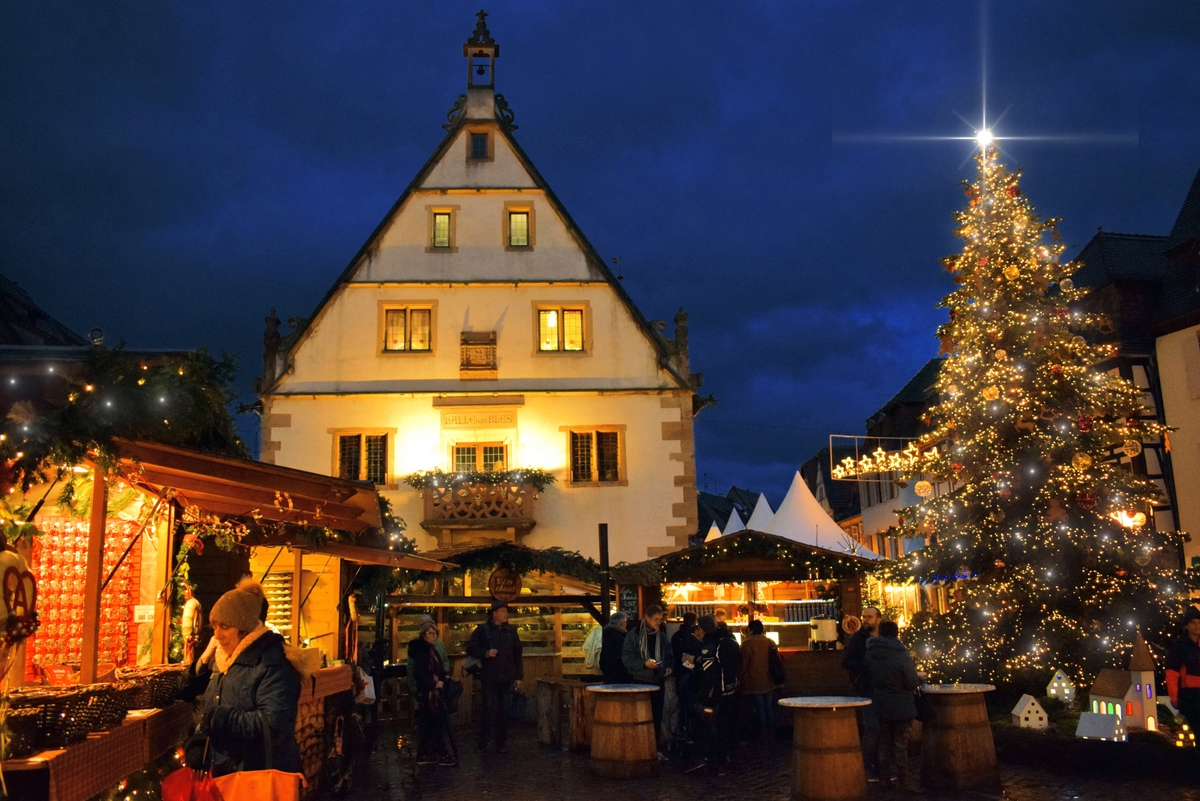
► Discover Obernai Christmas market
Ecomusée of Alsace
The Ecomusée of Alsace, France’s largest open-air museum is home to a multitude of Christmas trees.
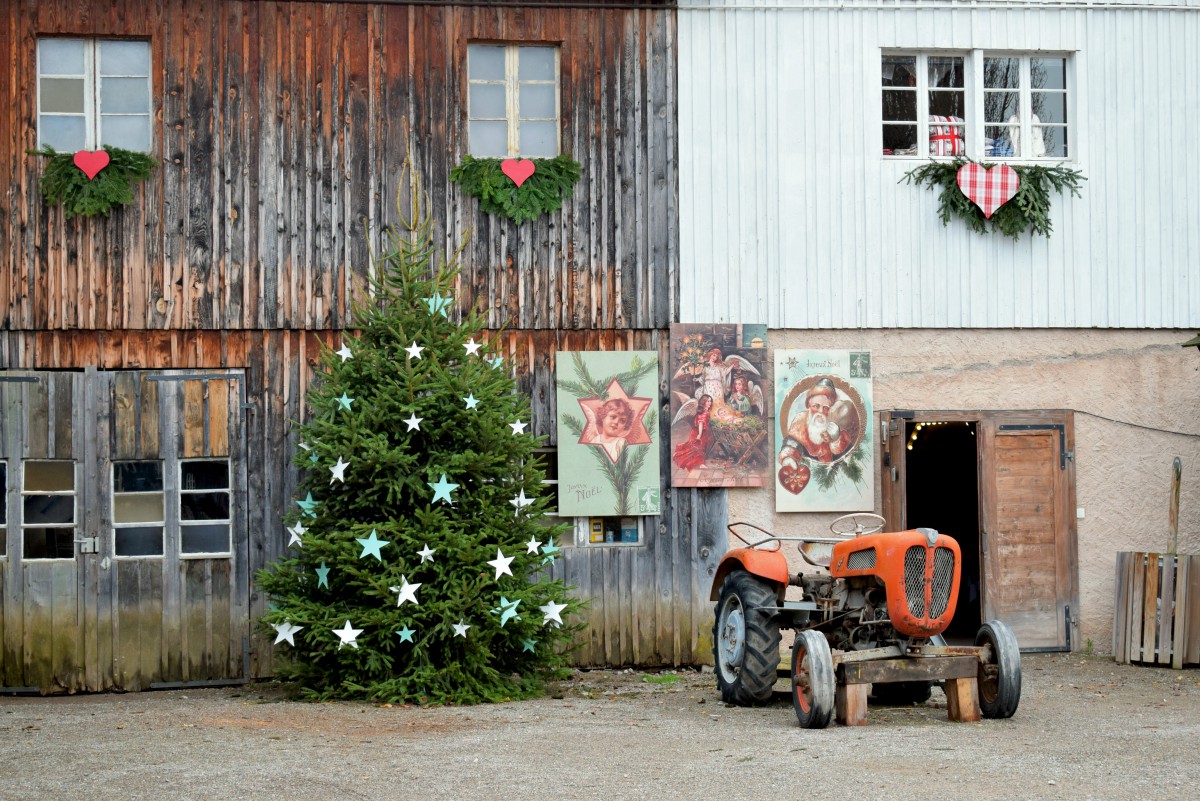
► Discover the Ecomusee of Alsace
► Read this page in French on our blog Mon Grand-Est. 🇫🇷
Inspired? Pin it for later:
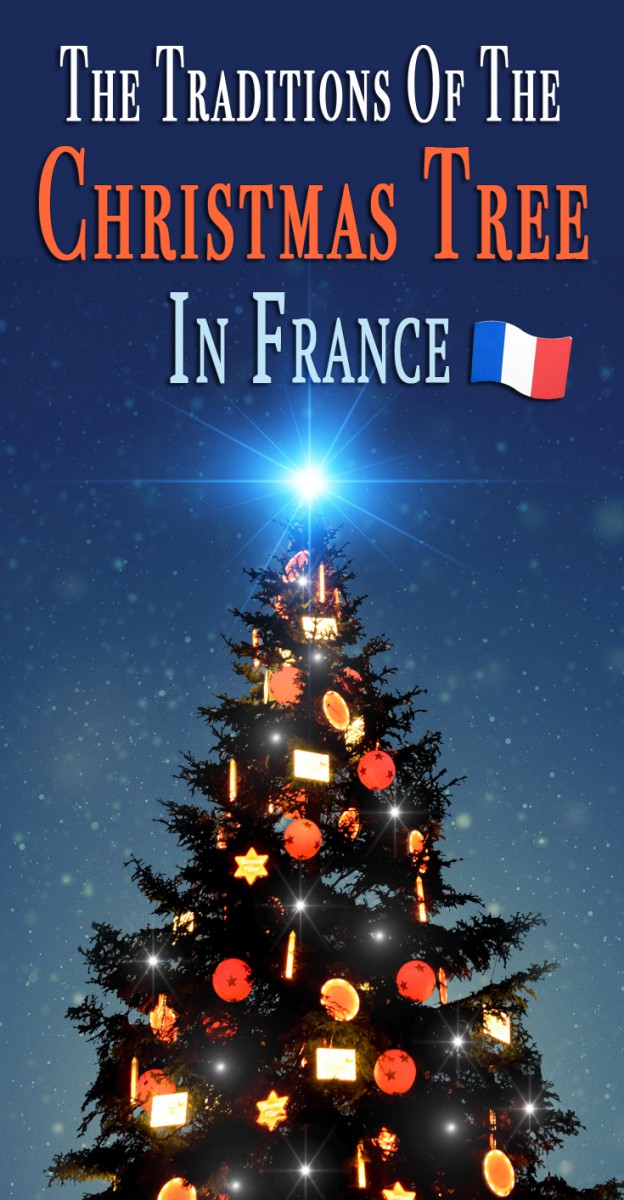



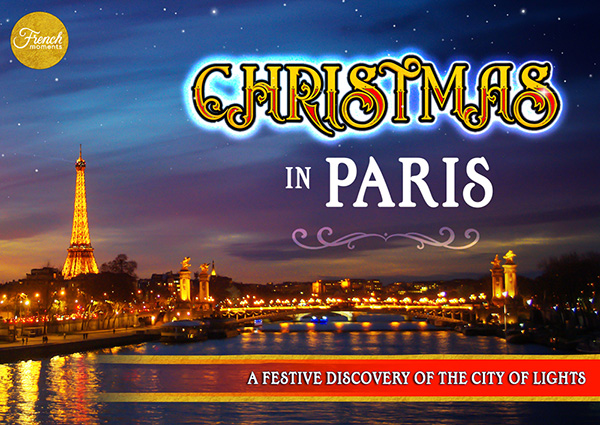


Joyeux Noel! How do the French dispose of their Christmas trees at the end of the holidays? We live in Toulouse in centreville and this is our first French Christmas. Should we leave it on the sidewalk? Are there collection centers?
Bonjour Joel ! Joyeux Noël à vous aussi ! The municipality of Toulouse gives you three ways to get rid of the tree, from 26 Dec to 31 Jan.
Here’s the link to the website (in French) > https://www.toulouse.fr/web/proprete-dechets/-/collecte-des-sapins-de-no-1
If your tree is not too bulky I recommend you leave it at one of the many collect points in the town-centre (sector 1)! ??
Great piece, Pierre, thank you! Makes me sad for Bordeaux, which decided to forgo the tradition this year… Christmas just isn’t Christmas without the tree!!
Thank you Leyla! I know, this has been a strange decision… but some other cities like Metz don’t have a ‘proper’ Christmas tree and nevertheless host a beautiful Christmas market. Hope to meet you in Annecy one day in 2021… I intended to do so last November but had to shorten my trip to France because of lockdown. Have a beautiful Christmas and a happy new year! A bientôt ! 👋